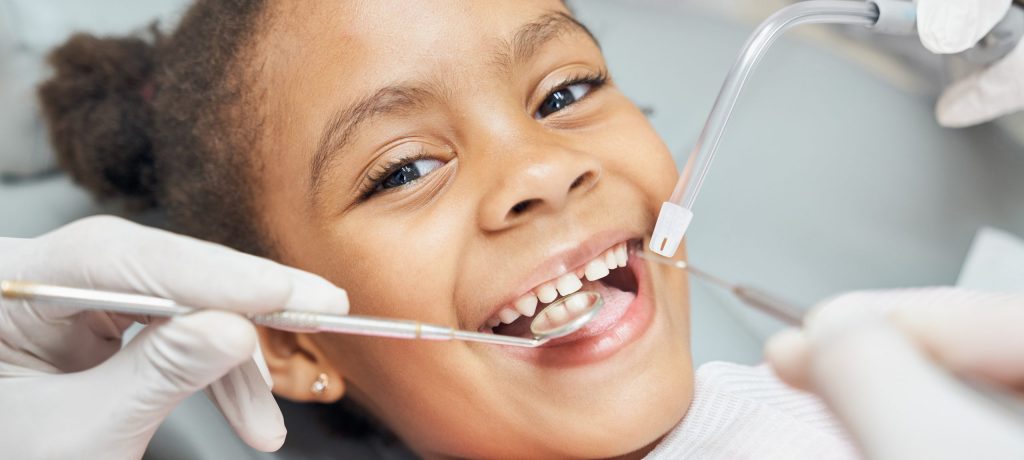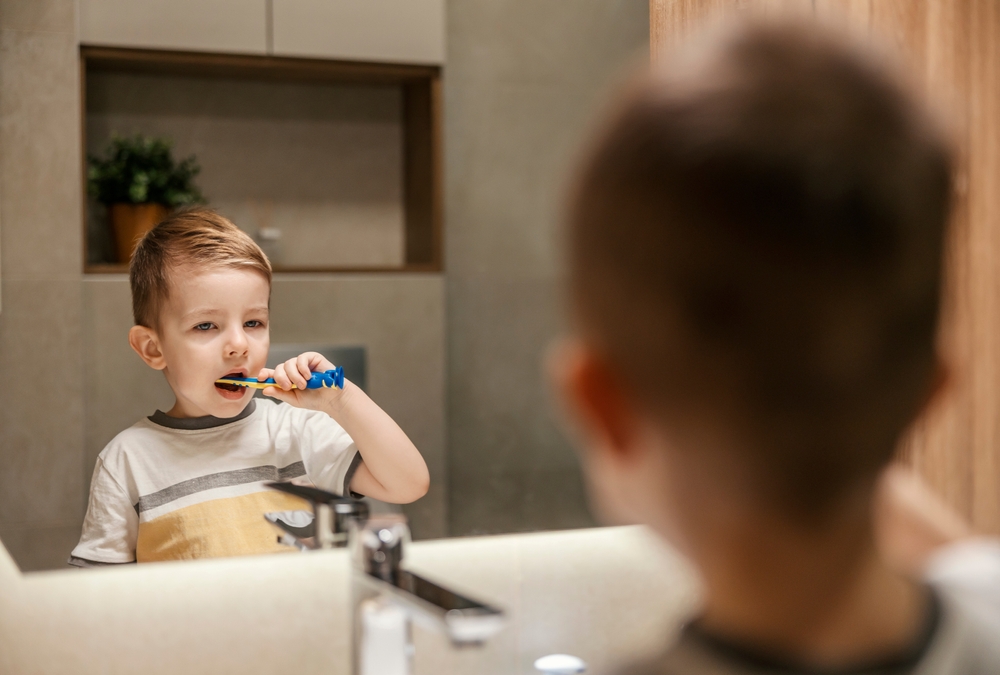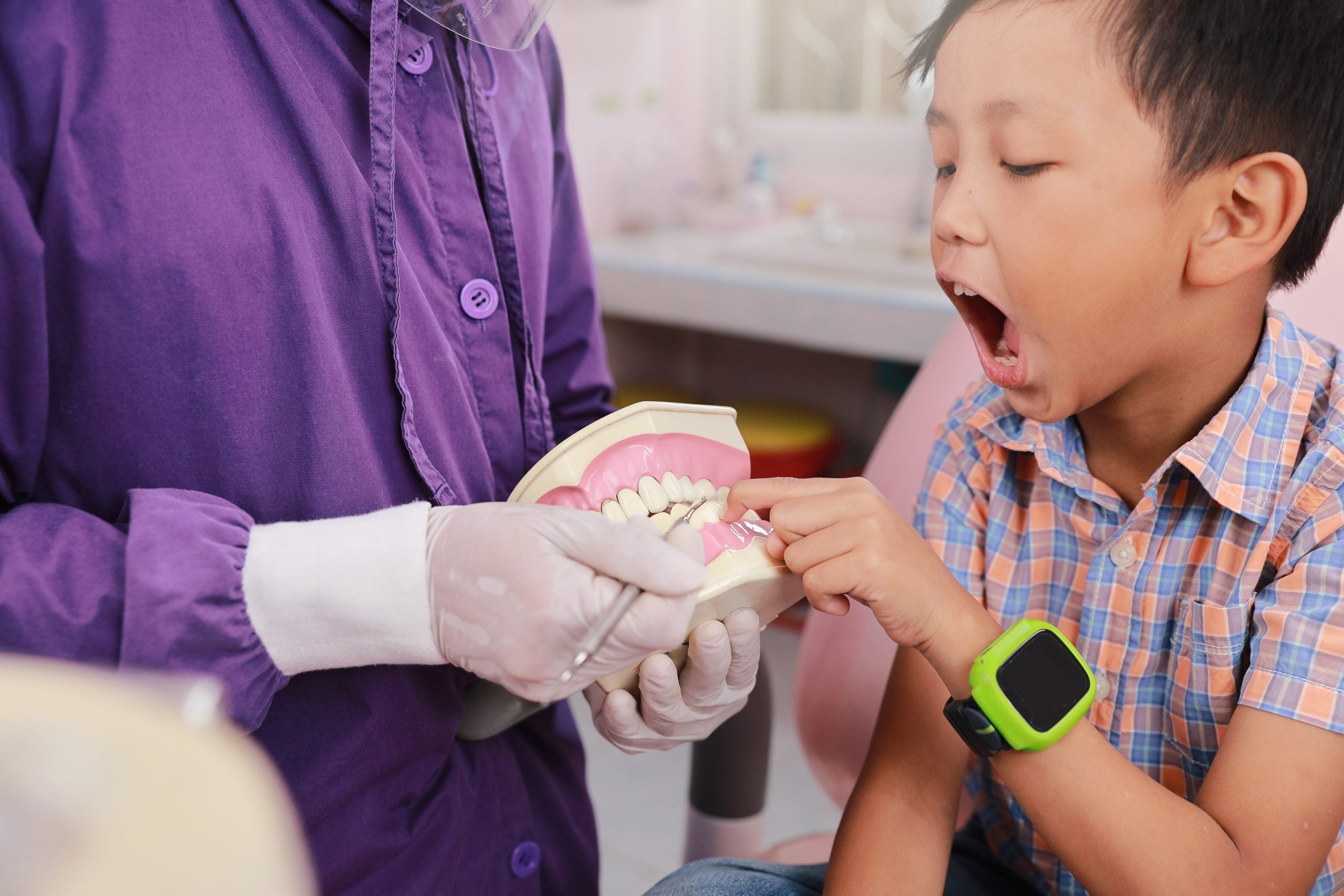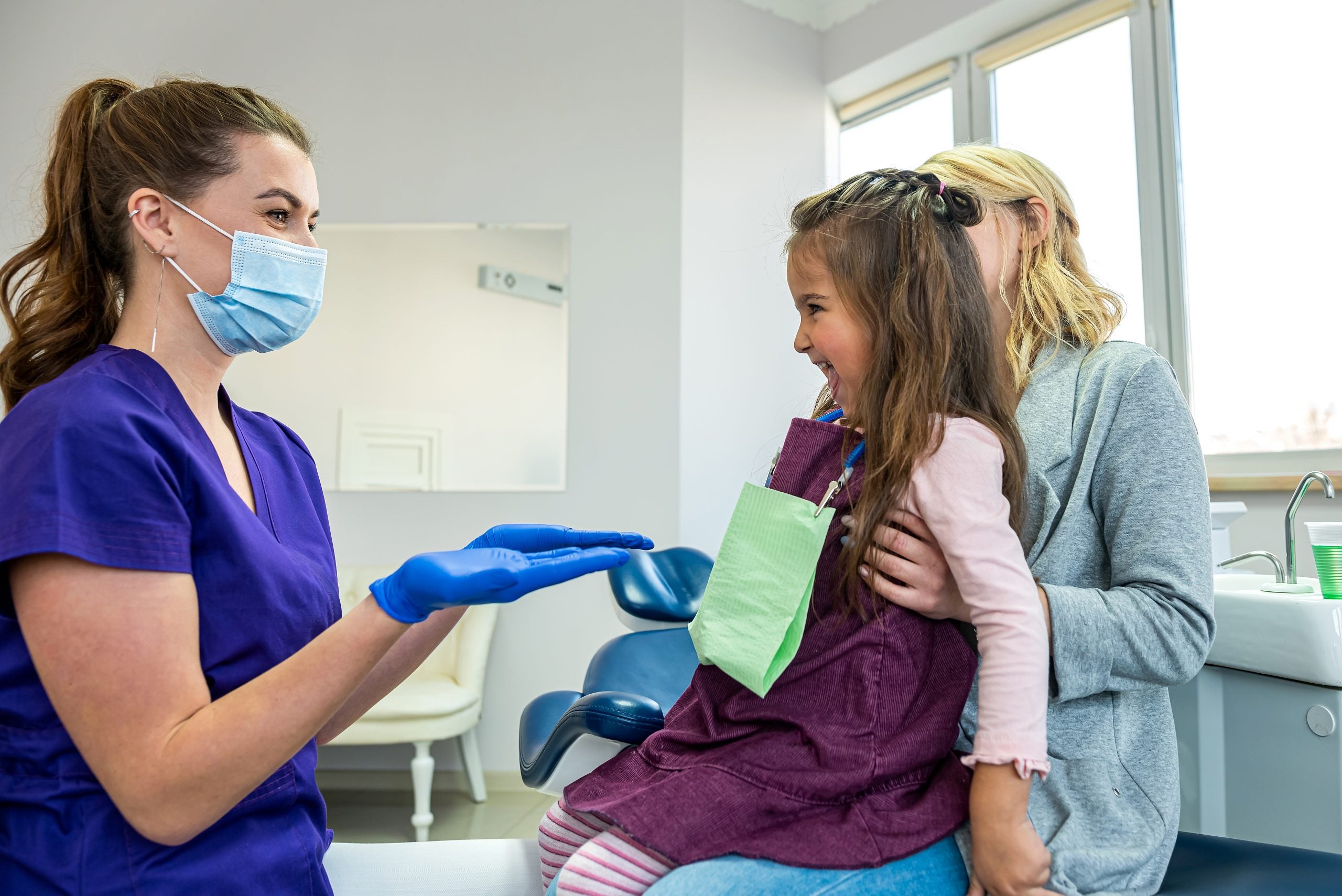Information Library
Start Reading

Parents and other adult caregivers have questions about how to best support their children’s dental health. February, which the American Dental Association observes as National Children’s Dental Health Month, is a great time to get answers.
Our team at Penn Dental Medicine (PDM) includes some of the most skilled pediatric dentists in Philadelphia. Here are answers to some dental care questions often asked.

Most infants’ baby teeth come in at about six months. All baby teeth should be in place by the child’s third birthday. If no baby teeth have appeared by 12-15 months, schedule a pediatric dental consultation.
Teething children may fuss and drool, suck their fingers, have trouble sleeping, or lose appetite. To help ease these symptoms:

Thumbsucking is natural. It can help children soothe themselves, fall asleep, and feel secure.
Some adults give children pacifiers. Choose orthodontic pacifiers. They allow for babies’ natural tongue thrust and are less likely to contribute to open bites.
Thumbsucking or pacifier use must stop by the time the child is age 2-4 to help avoid bad bites. Pediatric dentists can use a mouth appliance with older children to help them break the habit.
Start brushing your child’s teeth, twice a day, as soon as the first tooth comes in.
For children under age 2, use a smear of fluoride toothpaste the size of a rice grain. For children over age 2, use a pea-sized amount of fluoride toothpaste.
As soon as your child’s teeth touch each other, start flossing them. Floss once or twice a week to help children build the habit. Use soft, colorful floss picks that are easy for young hands to hold.
Sometime between 18 months and 5 years old, children may want to start brushing by themselves. Encourage their sense of independence and let them try, but keep brushing their teeth after they do. They won’t fully develop the needed dexterity until age 7 or 8. Children will also need your help flossing even after they can brush on their own.
At any age, too much starchy and sugary food and drink are bad for oral health and overall health.
 To encourage your child’s healthy teeth and gums, choose nutrient-rich foods over energy-rich ones. Foods high in minerals like calcium and iron and vitamins B, C, and others all promote good oral health. Some of the best choices include:
To encourage your child’s healthy teeth and gums, choose nutrient-rich foods over energy-rich ones. Foods high in minerals like calcium and iron and vitamins B, C, and others all promote good oral health. Some of the best choices include:
Tap water is the best drink for teeth, especially when fluoridated. Fluoride strengthens enamel, helping prevent tooth decay. If your local water supply isn’t fluoridated, talk with your pediatric dentist about fluoride drops you can add to food.
Fruit juices and juice drinks contain large amounts of added sugar. Even 100% fruit juices contain natural sugars the mouth processes the same way it does added sugars. Children under age 2 should not drink juice. Older children can drink half-cup (4 fluid ounces) servings but should do so when eating. Chewing increases saliva, which naturally helps wash away sugary juice residue.
As soon as your child’s first tooth appears or no later than their first birthday, your child should visit a pediatric dentist, according to the American Academy of Pediatric Dentistry.
Many children naturally feel nervous or afraid about their first dental visit. You can help prepare them by:
Here at PDM, our pediatric dentists help children from the city and throughout the region get a start on a lifetime of healthy teeth and gums.
As you search for a pediatric dentistry practice in Philadelphia, be sure you’re asking the right questions. Download our free brochure, Must-Ask Questions for Your Child’s Dentist. It will help you make the best choices you can for your children’s dental health.